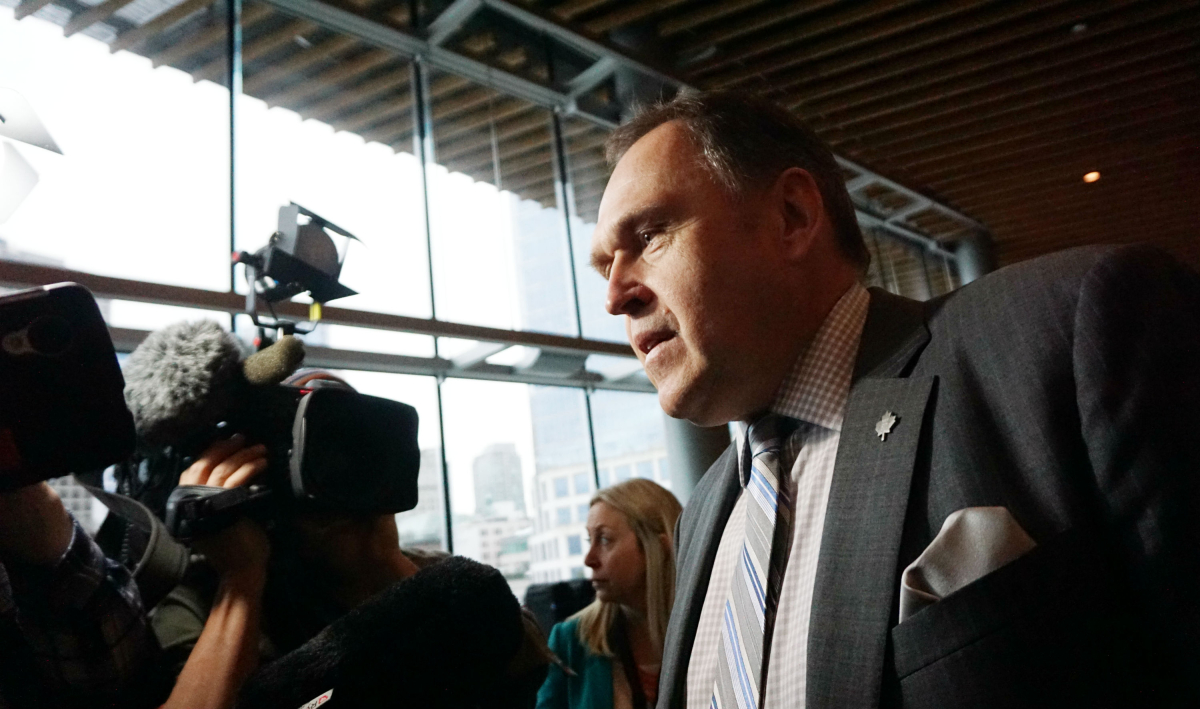Support strong Canadian climate journalism for 2025
Canada's provinces and territories are committed to freer trade within the country's borders, says Yukon Premier Darrell Pasloski as provincial and territorial leaders gather in Whitehorse.
Pasloski said Tuesday the leaders are focused on a free-trade agreement that would allow provinces and territories to do business with each other in the same way Canada trades with other countries with which it has free trade deals.
The final touches on an elusive, renewed trade pact between the provinces, territories and the federal government are expected to be on the table during meetings of the Council of the Federation, which represents Canada's 10 provinces and three territories.
"In the end, we want to see an agreement come forward because we have to ensure that when we're trading and we're doing business among ourselves that there isn't more barriers there than there is with free trade agreements we agreed to with other countries," said Pasloski.
The meetings in Whitehorse with aboriginal leaders start Wednesday and continue Thursday and Friday between the premiers.
"It's ridiculous you can't buy B.C. wine in Ontario when you can buy it almost anywhere else around the world," said British Columbia Premier Christy Clark.
Clark said the interprovincial deal is close, but only after intense negotiations.
"President (Barack) Obama says democracy means compromising even when you are 100-per-cent right," she said. "And what's happened around the table is every province has been convinced they're 100-per-cent right but nonetheless has found a way to compromise."
B.C., Alberta and Saskatchewan formed its own free-trade alliance, the New West Partnership, three years ago to improve labour mobility and cut bureaucracy.
Prime Minister Justin Trudeau is not attending the meetings, but the federal presence casts a long shadow over the talks.
Speaking in Gatineau, Que., Trudeau cited recent negotiations on the Canada Pension Plan as a sign that provinces can work together.
"Canadians expect their leaders to work together to figure things out in the best interests of Canadians and that's exactly what I know the premiers are focusing on doing in Whitehorse," he said Wednesday.
The premiers are also expected to discuss health care, climate change and pension reform.
Political scientist Hamish Telford said the meetings allow the premiers to map strategy and co-ordinate their approaches to the federal government on often-complicated and costly issues.
"If every time the prime minister shows up to meet with the premiers and there are 13 different propositions on the table they'll never get anything done," said Telford, who teaches at B.C.'s University of the Fraser Valley.
"But if they go to a COF meeting and winnow it down to one or at best two propositions or proposals then they've got a position that the federal government can work with."
One proposition that is a guaranteed will be a call for more health-care funding, he said.
The federal Liberals promised to negotiate a new health accord with the provinces and territories, including a long-term deal on funding.
"I know there will be a conversation at the table of what the expectations are across the country," said Ontario Premier Kathleen Wynne.
Premier Dwight Ball of Newfoundland and Labrador said his cash-strapped province faces a spike in medical costs as the population ages.
Wynne and Clark expressed confidence a new Canada Pension Plan deal will be ratified, but likely not at the Whitehorse meetings.
Alberta Premier Rachel Notley said she will discuss the need for pipelines to tidewater along with disaster response and recovery after the recent devastation of the Fort McMurray wildfire.



Comments